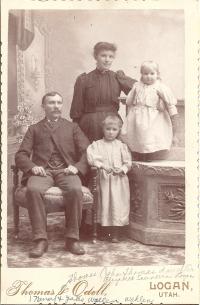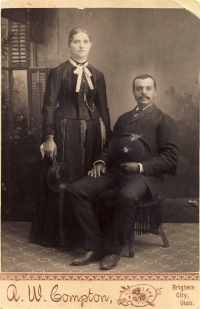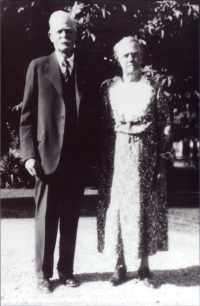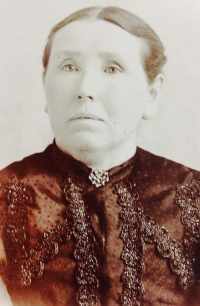I was pleased that the LDS church (Mormon) made a statement about refugees on Jan 28, 2017.
I didn't think when I posted a reading list for Betsy DeVos, I was planning on creating an educational reading list every few days to address some trending issues that calls into question the values that we teach when we advocate for social justice. I guess I was a bit short sighted. As the year pushes forward, there will be occasions for more lists. If youget inspired to create one that address a specific issue, let me know.
Does this issue tie to Young Adult Literature? Well, it does, and my go to expert is Bryan Ripley Crandall. Bryan walks the walk. He has worked with refugees, not only as a sponsor and advocate, but as a father. He did a remarkable workshop at the LSU conference a couple of years ago. You can read about what they did and what they produced here. You can follow his blog. I believe in learning through vicarious experience. At the same time, there should be a point at which we begin to act. The bulk of this posting is a "cut an paste" from Bryan's Jan 29, 2017 posting. On Saturday, I reached out to him, I was worried how the events of the day were playing out in his life. He is doing fine, but frustrated--read his post it provides a list of Children's and YA literature that address the refugee issue.
Sunday, January 29, 2017
The Tired. The Poor. The Hungry. Resources Important To Me by Bryan Ripley Crandall
Dr. Steven Bickmore, of young adult literature fame, reached out to me yesterday and wondered how I was doing with all this strife. He asked if I had list of resources I might share with him and I do. I did. I appreciate that he checked on me and am putting this list here in case it is helpful to anyone wishing to begin the journey of texts that definitely counter the rhetoric and policy coming out of the capital of the United States at this time. These recent decisions make little sense when one reads research, considers practice, explores narrative and text, and contemplates history. My lists may repeat texts, but I created two: one for K-6 (above) and one for 6-12 (below).
For some time now I've collected children, young adult, and adult books that have helped me to understand shifting demographics, the plight of refugees, and the struggle of relocation. In this sense, these resources have assisted the irreplaceable, incredible, and inspirational work I've been fortunate enough to do with relocated African refugee populations since I was a teacher in Louisville.
Until this year, I did not imagine that the greatest civilization to date could suddenly switch gears on its mission and purpose. It happened rather quickly. I'm not a religious fellow, but it seems to me that these decisions are the antithesis of what the "good" books teach us. To put restrictions on immigration and refugees due to personal whims simply seems ludicrous.
I don't know where to begin, but for those who want to start somewhere, here you go. When you finish reading these texts, and if you still feel that current decisions are warranted, then we should talk. At this point, it is no longer about being an American, a Democrat, or a Republican. This is about being a civil human. Period.
African Refugee Narratives in Young Adult Literature
Applegate, K. (2007). Home of the Brave. New York: McMillan.
Bassoff, L., & DeLuca, L. (2014). Lost Girl Found. Toronto, Canada: Groundwood Books.
Cooney, C. B. (2007). Diamonds in the Shadow. New York: Delacorte Press.
Cornwell, N., & Littlewood, K. (2012). Christophe's Story. NewYork: Frances Lincoln.
Dau, J. B., & Akech, M. A. (2010). Lost Boy, Lost Girl; Escaping Civil War in Sudan.
Washington, D.C.: National Geographic Society.
Farish, T. (2012). The Good Braider. New York: Skyscrape.
Mead, A. (2003). Year of No Rain. New York: Macmillan.
Mikaelsen, B. (2004). Tree Girl. New York: Harper Collins.
Naidoo, B. (2000). The Other Side of Truth. New York: HarperCollins.
Padian, M. (2013). Out of Nowhere. New York: Knopf Books for Young Readers.
Park, L. S. (2010). A Long To Water: Based on a True Story. New York: Clarion Books.
Stewart, E. (2014). Blue Gold. Toronto, Canada: Annick Press.
Whitman, S. (2014). The Milk of Birds. New York: Atheneum Books.
Williams, M. (2011). Now is the Time For Running. New York: Little, Brown and Company.
Zephaniah, B. (2011). Refugee Boy. New York.
Additional African Refugee Narratives
Akpan, U. (2008). Say You're One of Them. New York: Little, Brown & Company.
Beah, I. (2008). A Long Way Gone: Memoirs of a Boy Soldier. New York: Sarah Crichton Books.
Dau, J. B. (2007). God Grew Tired of Us: A Memoir. Washington, D.C.: National Geographic.
Eggers, D. (2006). What Is The What. San Francisco: McSweeny’s.
Jal, E. (2009). War Child: A Child Soldier's Story. New York: St. Martin's Press.
John, W. S. (2009). Outcasts United; A Refugee Team, an American Town. New York: Spiegel &
Grau.
McDonnell, F. J. H., & Akallo, G. (2007). Girl Soldier: A Story of Hope for Northern Uganda's Children. Grand Rapids, Michigan: Chosen Books.
Kamara, M. (2008). The Bite of the Mango. Buffalo: Annick Press.
Other Resources
Bixler, M. (2005). The Lost Boys of Sudan; An American Story of the Refugee Experience.
Athens, Georgia: University of Georgia Press.
Bloomfield, S. (2010). Africa United: Soccer, Passion, Politics, and the First World Cup in
Africa. New York: Harper Perennial.
Carlin, J. (2009). Invictus: Nelson Mandela and the Game That Made a Nation. New York:
Penguin.
ESRI. (2013). Fifty Largest Refugee Camps. Redlands, California. Accessed online on
November 14, 2013 at http://storymaps.esri.com/stories/2013/refugee-camps/
#sthash.dLloxBzL.dpuf
Foer, F. (2004). How Soccer Explains the World: An Unlikely Theory of Globalization. New
York: Harper.
International Rescue Committee (2006). Refugee Children and Youth Backgrounders. New York.
Accessed online July 7th, 2008 at http://www.rescue.org/sites/default/files/migrated/where/united_states_salt_lake_city_ut/refugee-backgrounders.pdf
McMahon, F. R. (2007). Not Just Child's Play; Emerging Traditions and the Lost Boys of Sudan. Jackson: University of Mississippi Press.
Pipher, M. (2002). The Middle of Everywhere: Helping Refugees Enter the American Community. New York: Hartcourt, Inc.
Shenk, J., & Mylan, M. (Writers) & POV (Director). (2004). Lost boys of sudan [film]. United States: Actual Film s& Principle productions in association with American Documentary, Inc. and ITVS.
Smith, S. C. (2005). Ending Global Poverty; A Guide to What Works. New York: Pelgrave Macmillan Publishing.
Selected Research
Alvarez, G., Benjamin-Gomez, A., & Hunklin, M. (2010). Students with Interrupted Formal Education: A Challenge for the New York City Public Schools. New York: Advocates for Children of New York.
Campano, G. (2007). Immigrant students and literacy; Reading, writing, and remembering. New York: Teachers College Press.
Crandall, B. R. (2012). "A Responsibility to Speak Out”: Perspectives on Writing From Black African-Born Males With Limited and Disrupted Formal Education. (Dissertation), Syracuse University.
Crandall, B. R. (2014). Lost voices in an American high school: Sudanese male English-language learners' perspectives on writing. In C. Compton-Lilly & E. halverson (Eds.), Time and Space In Literacy Research (pp. 107-121). New York: Routledge.
DelliCarpini, M. (2008). Working with English language learners: Looking back, moving forward. English Journal, 98(1), 98 - 101.
Decapua, A., & Marshall, H. W. (2010). Students with Limited or Interrupted Formal Education in US Classrooms. The Urban Review, 42(2), 159-173.
Fu, D. (2007). Teaching writing to English language learners. In T. N. a. R. Kent (Ed.), Teaching the neglect "R"; Rethinking writing instruction in secondary classrooms (pp. 225-242). New Hampshire: Heinemann Press.
Fu, D., & Graff, J. M. (2009). The Literacies of New Immigrant Youth. In L. Christenbury, R. Bomer & P. Smagorinsky (Eds.), Handbook of Adolescent Literacy Research (pp. 400-414). New York Guilford.
Goodwin, A. L. (2002). Teacher preparation and the Education of Immigrant Children. Education and Urban Society, 34(2), 156-172.
Naidoo, L. (2008). Supporting African refugees in greater western Syndney; a critical ethnography of after-school homework tutoring centers. Education Research for Policy and Practice, 7, 139-150.
Rong, X. L., & Brown, F. (2002). Socialization, culture, and identities of Black immigrant children: What educators need to know and do. Education and Urban Society, 34(2), 247-273.
Roxas, K. (2008). Who Dares to Dream The American Dream? Multicultural Education, 16(2), 2-9.
Roxas, K. (2010). Tales from the Front Line: Teachers' Responses to Somali Bantu Refugee Students. Urban Education, 46(3), 513-548.
Roxas, K. (2010). Who really wants "The tired, the poor, and the huddled masses" anyway?: Teachers' use of cultural scripts with refugee students in public schools. Multicultural Perspectives, 12(2), 65-73.
Roxas, K., & Roy, L. (2012). "That's How We Roll": A Case Study of a Recently Arrived Refugee Student in an Urban High School. The Urban Review, 44(4).
Roy, L. A. (2008). Language and literacy practices: Somali Bantu refugee students and families in a predominately latino school and community. Dissertation. The University of Texas at San Antonio. San Antonio.
Roy, L. A., & Roxas, K. C. (2011). Whose Deficit Is This Anyhow? Exploring Counter-Stories of Somali Bantu Refugees' Experiences in "Doing School". Harvard Educational Review, 81(3), 521-541.
Sarroub, L. K. (2007). Seeking refuge in literacy from a scorpion bite. Ethnography and Education, 2(3), 365-380.
Shaw, J. A. (2003). Children Exposed to War/Terrorism. Clinical Child and Family Psychology Review, 6(4), 237-246.
Smith, S. C. (2005). Ending Global Poverty; A Guide to What Works. New York: Pelgrave Macmillan Publishing.
Tadesse, S., Hoot, J., & Watson-Thompson, O. (2009). Exploring the special needs of African children in U.S. schools. Childhood Education, 352-356.
Townsend, J. S., & Fu, D. (2001). Paw's story: A Laotian refugee's lonely entry into American literacy. Journal of Adolescent & Adult Literacy, 45(2), 104-114.
Trueba, H., Lila, J., & Kirton, E. (1990). Cultural Conflict and Adaptation: The Case of Hmong Children in American Society. New York: Falmer Press.
Vasudevan, L., & Campano, G. (2009). The Social Production of Adolescent Risk and the Promise of Adolescent Literacies. Review of Research in Education, 33, 310-353.





 RSS Feed
RSS Feed